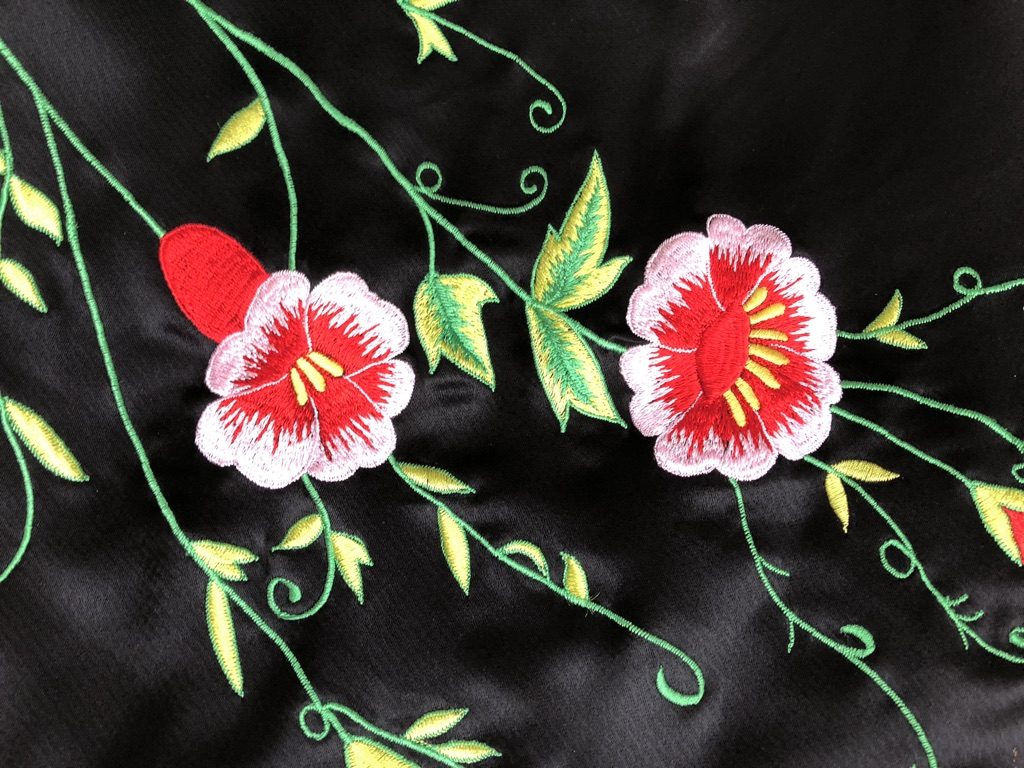People often joke that shopping is Singapore’s national sport and, like the rest of the island, it has evolved drastically over the past 50 years. Read all about it in the June/July issue of the Singapore American Newspaper:

Custom embroidery by Zann & Denn
Envision shopping in Singapore and it’s usually Orchard Road that pops into your head, a beacon of modernity, overflowing with brand name designers from all over the world. But just a few decades ago, a shopping spree here was a much different affair. Until store-bought fashion became readily available in the 1970s, tailors and dressmakers met all sartorial needs. Well-to-do society women would purchase paper sewing patterns from Robinsons, arguably Singapore’s most well-known department store, and then trawl for bales of fabric in the array of shops on High Street. Even celebrities like Elizabeth Taylor were known to visit these luxurious made-to-measure shops for one-of-a-kind gowns.
According to local musician Vernon Cornelius (affectionately known as the ‘Cliff Richard’ of Singapore), the start of the nation’s style consciousness was in the 1960s, when television and rock music came to the island. But in order to dress themselves in outfits they considered a “sincere form of expressing our own identity,” most young people like Cornelius had to save for weeks or months for custom, made-to-measure clothes. A far cry from the stockpile of cheap clothing now available at the click of a button.
While the nation’s love of shopping and fashion have in no way diminished, tailors have had to adjust to the times. The prevalence of online shopping has reduced the requests for made-to-measure clothes but has increased the demand for alterations. Fabric stores are fewer. Today, most are grouped together on Arab Street or in People’s Park Complex. Sewing has also become a less common skill, so the average age of dressmakers is rising, with fewer apprentices to take their places.
Suzanne Chua, a graduate of Raffles LaSalle, considers herself one of the youngest in the industry. “And I’m nearly fifty,” she laughs.
Chua and then-boyfriend-now-husband Dennis Koh jointly launched Zann & Denn in August 1997, currently located on Kreta Ayer Road, a few steps from Duxton Hill and Chinatown. Despite the challenges facing the industry, Chua remains hopeful that there will continue to be a market for bespoke clothing. After all, she notes, it’s not merely shopping. It’s an experience. And there’s nothing quite like owning something completely unique.
For Chua, maintaining her career in the made-to-measure industry has gone hand-in-hand with adaptation. She recently began collaborating with Universal Studios Singapore to create costumes for enormously popular events like Halloween Horror Nights. She comments that the free range to be creative in designing costumes has been invigorating.
“Passion is what keeps you going when the market is low. I’m not a person who gives up easily,” Chua says. “There were many, many tailors; it depends on who perseveres.”
If you’d like to further explore Singapore’s rich fashion history, check out the book Fashion Most Wanted by John de Souza, Cat Ong and Tom Rao.


